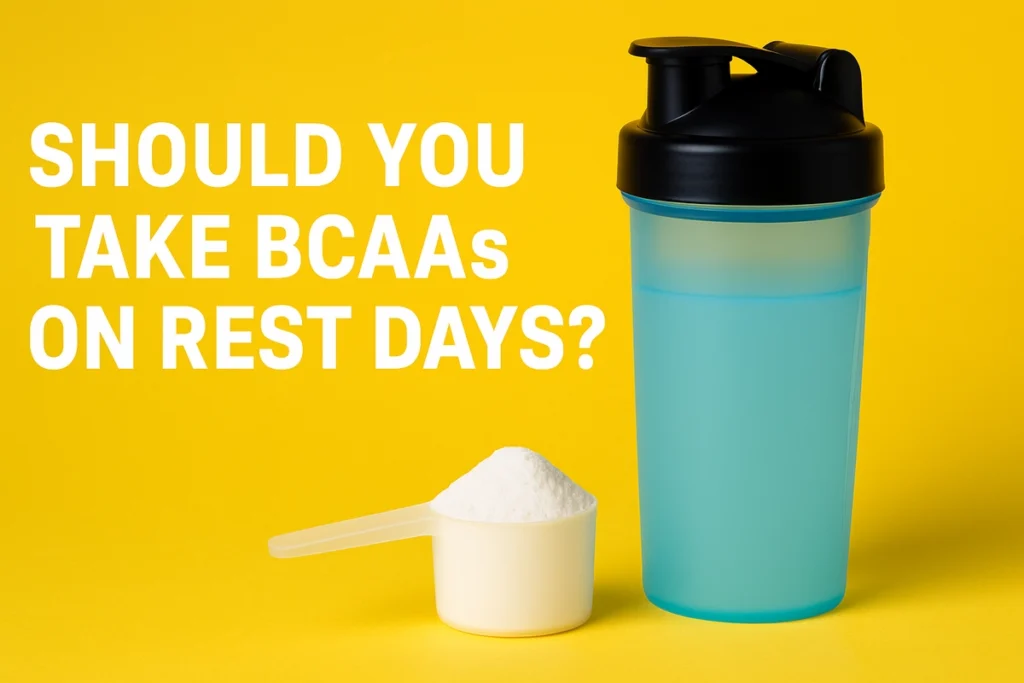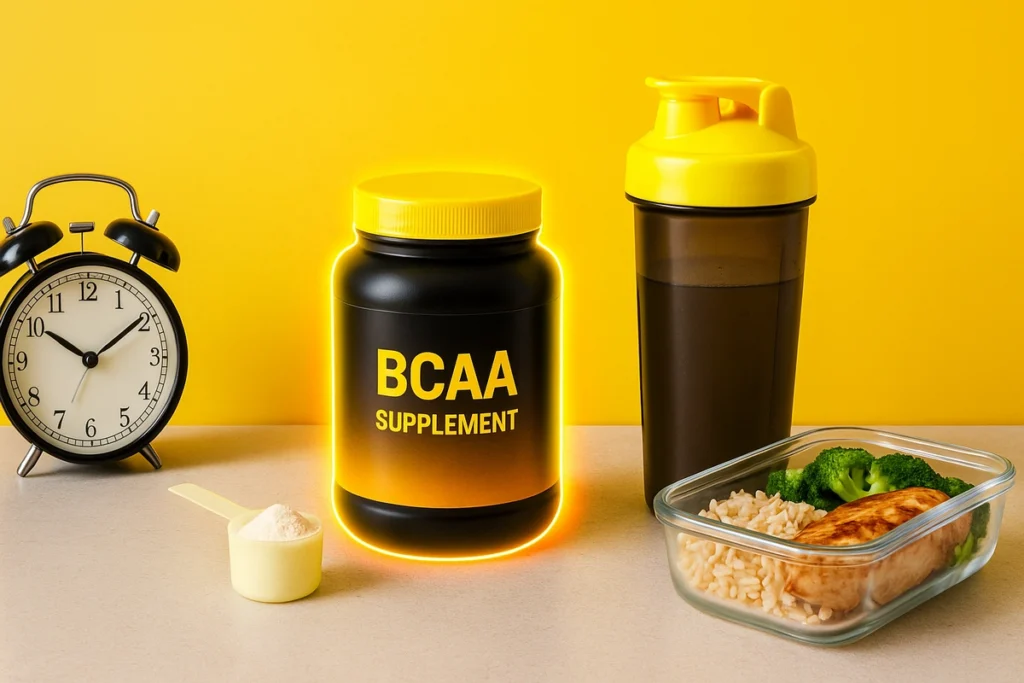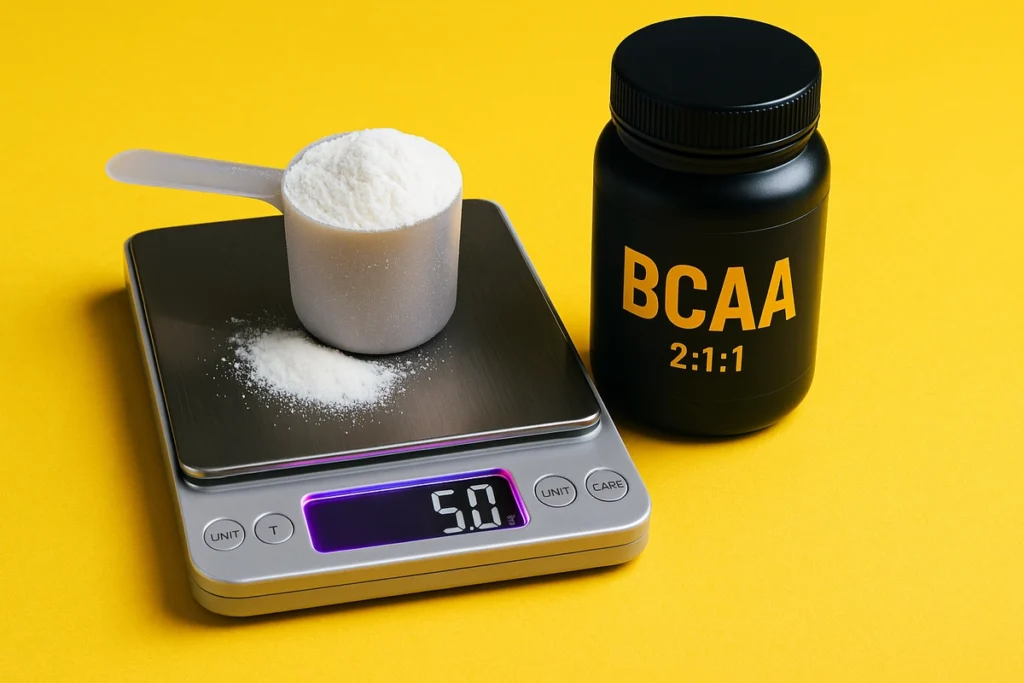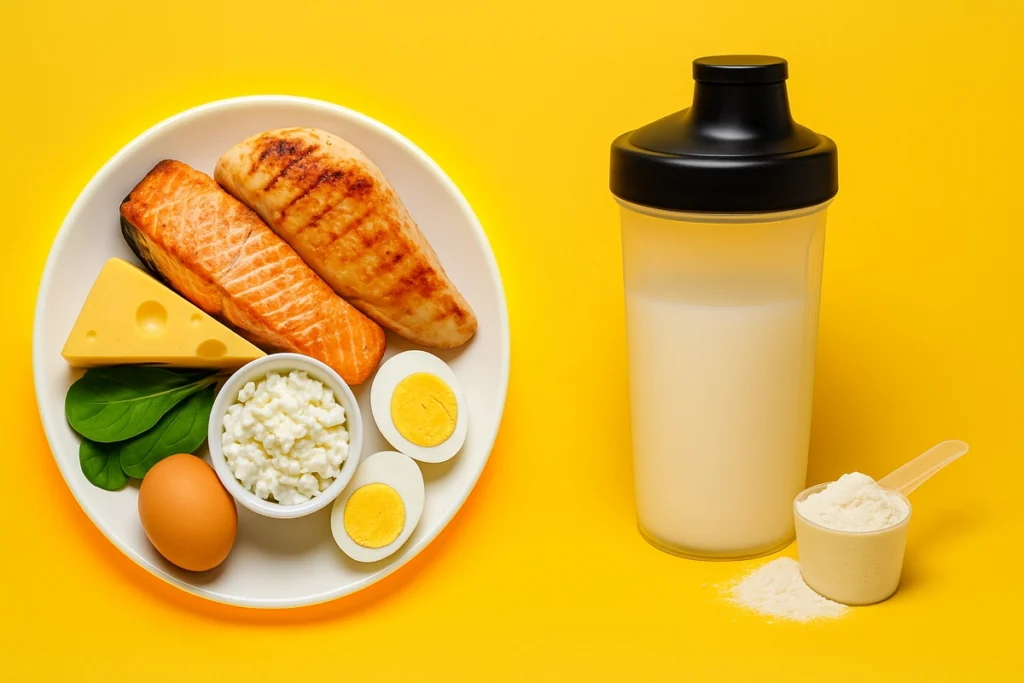Are BCAAs worth taking on your rest days — or are they just gym-day hype?
If you’ve ever wondered whether those amino acids matter when you’re not lifting, you’re not alone. Many lifters skip BCAAs on off days, thinking they’re only useful around workouts.
But here’s the truth: your muscles recover and rebuild even when you’re not training. And that’s exactly when BCAAs can help the most.
In this article, I’ll break down when and why to take BCAAs on rest days — based on both science and my real-world coaching experience.
Table of contents
- Quick Answer: Should You Take BCAAs on Rest Days?
- Why BCAAs Still Matter on Non-Training Days
- Best Time to Take BCAAs on Rest Days
- Who Benefits Most from Rest Day BCAAs?
- How Much BCAA Should You Take on Off Days?
- Can You Skip BCAAs on Rest Days If You Eat Enough Protein?
- Final Verdict: Use BCAAs Smartly on Off Days
Quick Answer: Should You Take BCAAs on Rest Days?

Yes — and here’s why: BCAAs aren’t just for training days.
As a fitness coach who’s gone through years of intense cutting and bulking phases, I’ve personally felt the difference when I added BCAAs on my rest days — especially during calorie deficits.
Whether you’re looking to recover faster, preserve lean muscle, or stay energized during fasted hours, BCAAs can absolutely help on your off days.
Let me break down exactly how and when to use them smartly.
Why BCAAs Still Matter on Non-Training Days

Your muscles don’t stop recovering just because you’re not in the gym. In fact, recovery is when the actual growth happens.
That’s where BCAAs step in:
- Support muscle repair: BCAAs, especially leucine, trigger protein synthesis even without a workout stimulus.
- Prevent muscle breakdown: On low-calorie or fasted days, they act as an anti-catabolic buffer.
- Keep you feeling less sore: Personally, I’ve noticed reduced next-day soreness when I take BCAAs right after a heavy leg day — even if the next day is a rest day.
One of my clients, Thomas from Germany, shared that adding BCAAs to his morning routine during deload weeks helped him bounce back faster and feel fuller muscularly.
👉 Related:
Best Time to Take BCAAs on Rest Days

Morning:
This is my go-to time — especially when I’m fasted. Taking BCAAs in the morning gives your muscles a quick hit of amino acids when you haven’t eaten yet.
Between meals:
If your meals are spaced out or light in protein, a scoop of BCAAs between them can bridge that gap. I often do this when I’m traveling or during Ramadan when meals are more limited.
Before bed (optional):
Not always necessary, but some of my clients take BCAAs at night if they’ve had a light dinner or missed protein targets.
👉 Related: Should You Take BCAAs With or Without Food?
👉 Related: Are BCAAs Effective During Intermittent Fasting?
Who Benefits Most from Rest Day BCAAs?

- Cutting athletes: When calories are low, muscle loss is a real risk. BCAAs are a muscle-preserving insurance.
- Intermittent fasting followers: They help during long fasts, especially in the mornings. I used this strategy during Ramadan and it helped me maintain fullness and energy.
- Low-protein diets: If you’re not hitting your protein goal, BCAAs can fill in the gaps.
One of my clients, Maria from Brazil, was cutting aggressively and skipping BCAAs. She noticed more soreness and flatness. We reintroduced a morning dose of BCAAs and she quickly felt the difference.
👉 Read More:
- EAAs vs BCAAs vs Protein: What’s Best for Muscle Growth?
- Do You Really Need BCAAs If You Take Protein Powder?
How Much BCAA Should You Take on Off Days?

Stick to 5–10 grams of BCAAs, ideally with a 2:1:1 ratio (Leucine:Isoleucine:Valine).
I personally use one scoop (around 7 grams) with my morning water, especially when I’m skipping breakfast or feeling drained.
For flavored BCAAs, I recommend watermelon or pineapple — makes staying hydrated easier and more enjoyable.
👉 Related: How Many Grams of BCAAs Per Day Do Athletes Need?
Can You Skip BCAAs on Rest Days If You Eat Enough Protein?

Absolutely — but context matters.
When I’m in a bulking phase and eating 180–200g of protein daily, I don’t bother with BCAAs. Whole foods cover my amino needs just fine.
But during aggressive cuts or when protein is limited, I’ve seen noticeable dips in recovery and energy without them.
👉 Related: EAAs vs BCAAs for Workout Performance
Final Verdict: Use BCAAs Smartly on Off Days

BCAAs aren’t magic — but used smartly, they can support your goals.
If you’re cutting, fasting, or under-eating protein, take them in the morning or between meals on rest days.
They’ve helped me and many of my clients recover faster, feel fuller, and preserve hard-earned muscle — even when the gym is closed.
👉 Related:



Leave a Reply